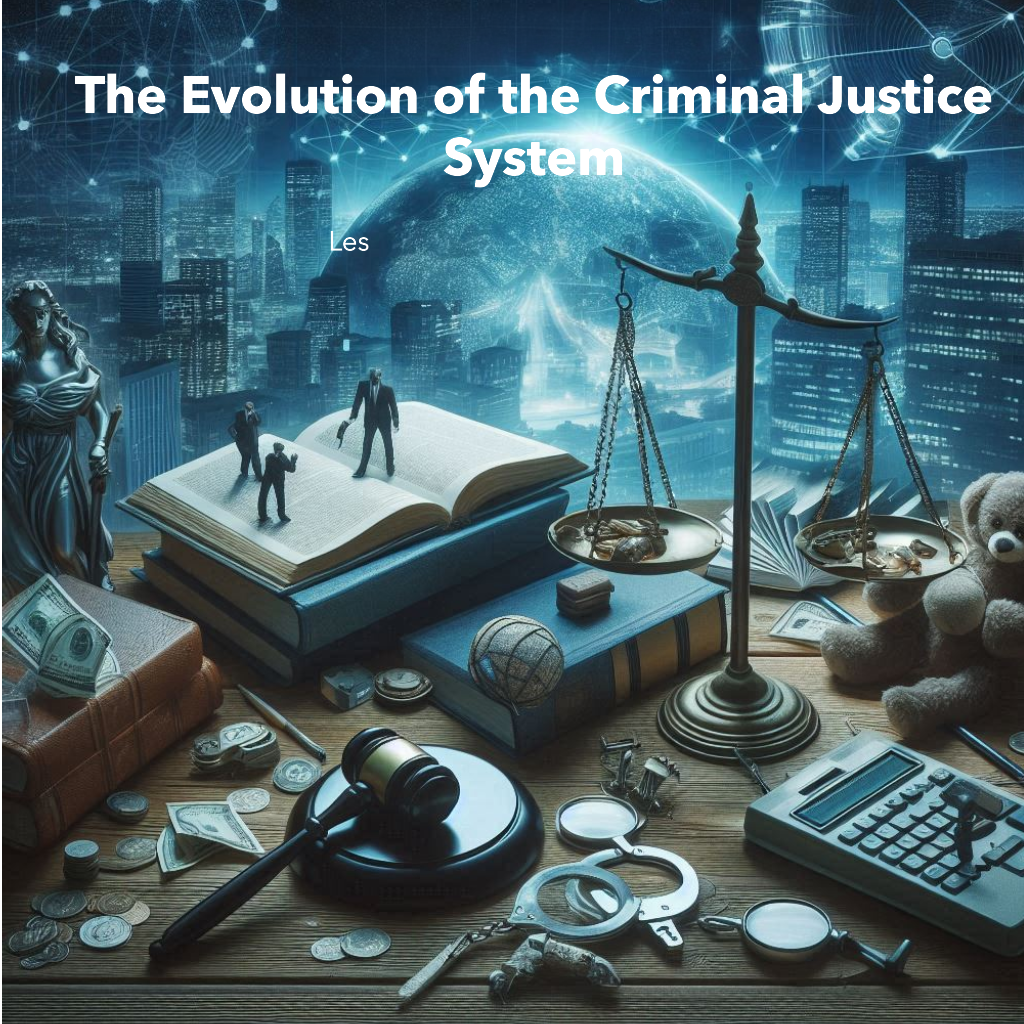July 12, 2024

Ohio Christian University
CJU1010 Introduction to Justice Systems (ONL24F1)
Professor Quinn
July 12, 2024
The Evolution of the Criminal Justice System
To acquire a comprehensive understanding of the current framework and functions of the criminal justice system, it is essential to delve into its historical evolution. This analysis seeks to scrutinize the impact of early organizational frameworks and legal doctrines on today’s criminal justice system, in order to lay the groundwork for future advancements and improvements (Masters, 2021).
The ancient civilization of Mesopotamia is recognized for instituting one of the earliest legal codes, namely, the Code of Hammurabi. This code underscored the principle of retributive justice and incorporated punishments that were specifically tailored to the crimes committed. It laid the groundwork for a legal system where laws were transparent and consistently applied (The Evolution of Criminal Justice Systems—A Historical Overview, 2023).
In the era of the Fifth Dynasty, ancient Egypt instituted a structured police force and judiciary. Judicial officials were appointed to manage legal affairs, while the police were charged with maintaining public order and apprehending offenders (The Most Important Events in Criminal Justice History, 2016).
The ancient Chinese prefecture system, which epitomizes the power of local governance, comprised local magistrates who were responsible for law enforcement and justice administration. This system, which emphasized the community’s role in maintaining order, has echoed throughout history, influencing the modern criminal justice system (The Historiography of Crime and Criminal Justice, 2016).
During the Middle Ages in medieval Europe, the Catholic Church exerted a significant and enduring influence over the criminal justice system. Local lords frequently administered justice through a method known as trial by ordeal, wherein the accused underwent physical trials to determine guilt or innocence. With its authority to grant pardons and reduce sentences, the Church had a lasting and profound impact on the justice system (Masters, 2021).
The Enlightenment period witnessed considerable philosophical shifts. Enlightenment philosophers such as John Locke and Cesare Beccaria championed criminal justice reform. They stressed the importance of proportional punishment and the reduction of the death penalty. Beccaria’s instrumental work, “On Crimes and Punishments,” proposed a more rational and kind approach to justice. This period marked a transition towards more humane forms of punishment, such as imprisonment, and the development of legal principles that prioritized the rights of the accused (Masters, 2021).
The Industrial Revolution, characterized by rapid urbanization, led to a spike in crime, which subsequently resulted in the establishment of professional police forces. Moreover, this era saw the construction of prisons with a focus on rehabilitation rather than mere punishment of criminals. Notably, the introduction of probation and parole aimed to assist in the reform of offenders and facilitate their reintegration into society (Masters, 2021).
The 20th century introduced substantial reforms, including the implementation of jury trials and the expansion of the prison system. These changes reflected an increased focus on due process and the rights of the accused. Technological advancements, including developments in forensic science and digital surveillance, have revolutionized contemporary criminal justice procedures, making them more efficient and effective (Masters, 2021).
The historical evolution of the criminal justice system represents a continuous process shaped by dynamic social, political, and technological factors. A thorough understanding of this historical context is essential for guiding future reforms and ensuring the integrity and effectiveness of the system (Masters, 2021).
In Christ’s Blessings,
Lesallan
References:
Masters, R. (2021). CJ: realities and challenges. McGraw-Hill Education.
The Evolution of Criminal Justice Systems – A Historical Overview. (2023). Retrieved from
https://www.lawnewsnetwork.com/the-evolution-of-criminal-justice-systems
The Most Important Events in Criminal Justice History. (2016). Retrieved from
https://www.criminaljusticedegreehub.com/important-events-criminal-justice-history
The Historiography of Crime and Criminal Justice. (2016). Retrieved from
https://academic.oup.com/edited-volume/28100/chapter/212185033


